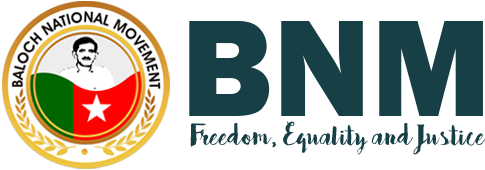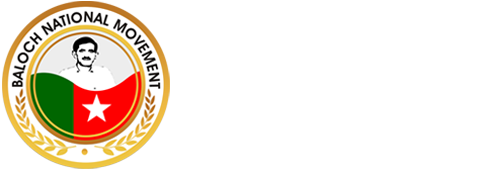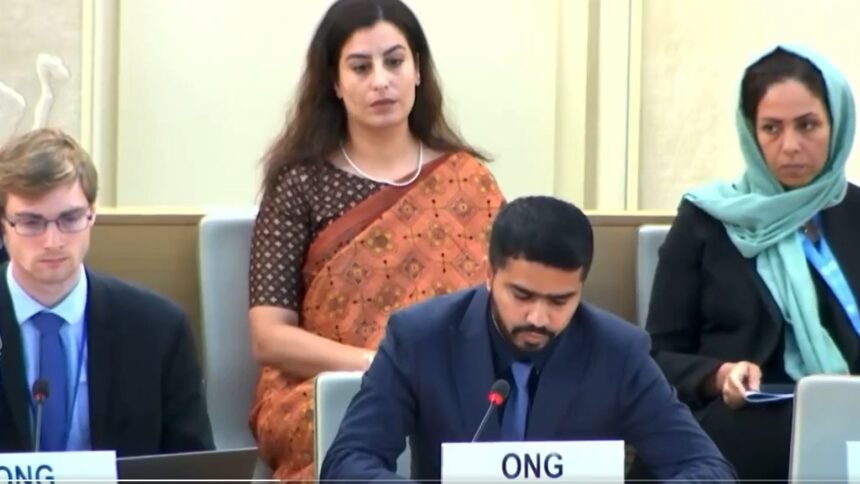Geneva: Niaz Baloch, Deputy Coordinator of the Baloch National Movement’s (BNM) Foreign Department and Central Committee member, addressed the United Nations 57th Human Rights Council’s general debate, focusing on the dire human rights situation in Balochistan, particularly the alarming rate of enforced disappearances and extrajudicial killings.
During his intervention, Niaz Baloch drew attention to the recent abduction of Ustad Wahid Kamber, a revered Baloch leader, by Pakistani forces in Kerman, Iran. He implored the council for immediate action toward the safe recovery of Baloch missing persons, including Ustad Wahid Kamber.
Niaz Baloch presented distressing statistics from Paank, a human rights organization, highlighting that in May 2024 alone, 90 individuals were reported forcibly missing, marking the highest monthly count that year. This trend, he noted, averages about 44 disappearances monthly. Furthermore, August 2024 witnessed 14 extrajudicial killings, averaging five such incidents per month, often disguised under the pretext of counter-terrorism operations.
The issue extends beyond Balochistan’s borders, with abductions of Baloch activists occurring in neighboring countries. On July 19, 2024, Wahid Buksh, known as Ustad Wahid Kamber Baloch, a 74-year-old senior leader, was abducted. This incident, likely politically motivated, has raised international alarms, especially considering his age and deteriorating health.
Niaz Baloch urged the Human Rights Council to hold Pakistan accountable for these atrocities and to push for the immediate release of those detained under these circumstances.
“Mr. President, today I urge this council to address the increasing human rights abuses in Balochistan and demand the release of the missing, including Wahid Kamber,” he concluded his speech, calling for global attention and intervention to stop the cycle of violence and human rights violations in the region.




